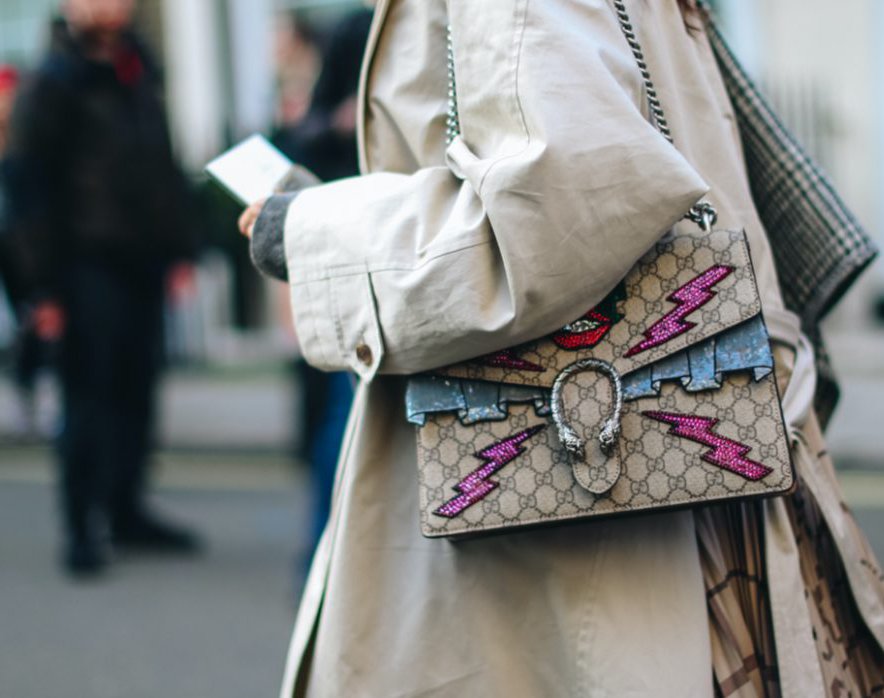Given the demographic changes of the global luxury market, brands that want to remain relevant will have to use the metaverse or vanish, because the value of a luxury brand is only to a limited extent the product, but intangible value, like its cultural influence, can account for 95% of the total value. A reflection, published in Jing Daily, by Daniel Langer, professor of luxury strategy and pricing at Pepperdine University in Malibu, California.
The metaverse can be defined as an immersive digital space in which personal experiences and interactions make people forget that they are in a simulated environment. It’s the internet “on steroids” and provides a more realistic user experience than previous digital and internet iterations. It’s a space that combines elements of social media, virtual and augmented realities, gamification, and digital products like NFTs.
Over the recent months, I had countless workshops and master classes on the implications of the metaverse with luxury, lifestyle, and consumer brands across all categories — even categories that, at first glance, seem less affected by the metaverse than others. While some see the implications of the metaverse as overrated, and while polls by Équité indicate that many mangers state that they “don’t have any experience with the metaverse” and that most “don’t use virtual reality headsets regularly,” we are already living in a metaverse reality — even if not yet at its full potential.
Take our new work reality: the sheer amount of endless Zoom or Teams calls. It’s a real scenario in which we are in the same meeting, in which we often forget that we are in different places, while we may join from our office, living room, car, or even somewhere in nature. While these meetings typically still happen in a two-dimensional way — we are looking on a screen rather than feeling that we are immersed in a simulated reality — we are already experiencing an, albeit basic, metaverse reality. As the technology rapidly evolves, this will change with unprecedented speed. Just remember that the Zoom reality has not been around for long, although it already feels that we’ve been using it forever. If we now agree that we are already experiencing the metaverse in its initial form, for many hours a day, the implications of a fully developed metaverse reality will be more disruptive than anything we have experienced so far.
But the luxury metaverse will be especially tricky when it comes to brand experiences. Think about purchasing anything in today’s high-end ecommerce environment. Most online store experiences resemble each other. They follow the same principle of a physical store. You “walk in,” find your items, place them in a cart, check out, and wait for your items to be delivered. In most cases, it takes longer than ordering anything on Amazon. Moreover, everything from entering the store to checking out is extremely similar between brands, at least in most cases. However, luxury must never be an undifferentiated experience.
When I ask how a luxury experience should be, I often hear that it should provide “best-in-class experience.” In fact, many luxury brand experience manuals use this term frequently and prominently. The problem with this is that trying to provide a best-in-class experience is far too abstract, and it can even dilute a brand’s message.
Our lives are increasingly infused with technology and digital experiences. We shop online and use apps all the time for almost anything. In China and the US, adults roughly spend five-to-seven hours a day on mobile devices, while US teenagers, i.e., young Gen Zers, spend nearly nine hours on average in front of screens. Therefore, this is why thinking in a fully interconnected luxury metaverse is so critical.
E-commerce sales now are significant for practically all luxury brands. In some cases, they reach as high as 30-to-40 percent of revenue, versus 5-to-10 percent prior to the start of the pandemic. Brands that didn’t take e-commerce and digital mastery seriously enough before the pandemic are now out of business or heading in that direction. It’s also proof that we are living in accelerated times, where change is happening exponentially — not gradually.
This should make luxury brands nervous when it comes to retail experiences in the physical world. Because the same unprecedented shifts in behaviors that drive online platforms will have a profound effect on the “real” world of brick-and-mortar stores. This brings us to the essence of luxury, where the need to create experiences that touch the heart of consumers and literally change them is of the utmost importance.
Even today, many brands think first and foremost about their products and technologies. Typically, most resources are in product development, R&D, and production, with craftsmanship and fine materials their point of differentiation. The problem is that they compete with many other luxury brands, which also make craftsmanship and fine materials their focus. As a result, products become more exchangeable — even at the highest level — and the purpose of brands becomes a critical factor, especially their emotional values.
This needs to be felt along all touchpoints. And retail is a critical touchpoint, as it’s the place where in-person interactions happen. This is also the place where brands can confirm and strengthen their digital storytelling that initiated the customer journey, or they can carelessly destroy it. Many times, they do the latter. In a recent “brand breakup” exercise, I could show that even one touchpoint that is “off-brand” can destroy decades-long brand loyalty. In luxury, because people tend to fall in love with brands, the stakes are dramatically higher. Yet, brands often don’t have holistic customer-centric strategies in place to ensure that the brand experience is coherent.
Even if luxury brands create a great experience, it’s almost never enough. In luxury, brands must create memories. Great experiences are simply expected when it comes to luxury. When we expect something, it’s already priced in. In other words, a great customer experience is the minimum expected experience in luxury — it’s nothing special. It will not be memorable, unless something unexpected, surprising, deeply involving happens. And more importantly, it can only be unexpected if it is differentiated and unique.
The metaverse complicates the delivery as it adds touchpoints almost exponentially and shifts the power of the brand experience from the brand to the customer. And, as up to 95 percent of purchase decisions in luxury are now initiated in the digital journey, the new moment of truth is shifted into the complex and rapidly evolving metaverse. For luxury brands there is no space for complacency. The non-linear nature of change will reward brands that shape the new reality — becoming disruptors — and it will make “traditional” brands that apply a wait-and-see approach obsolete in shorter time frames than ever experienced before. It’s a new game. It will create new leaders. Will you be one of them?


